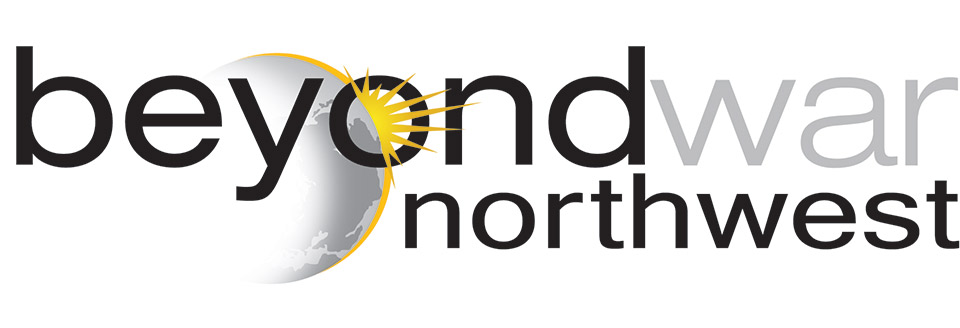As lowly citizens trying to understand the enormous resources poured into the national security state, it may help to examine the “meta-thinking” behind the mass mining of “meta-data” from our telephones and e-mails.
Aside from debate about whether our government may be massively violating the 4th Amendment, we need to begin with compassion. It is not hard to see how fear and political necessity are among the engines driving the growth of the secrecy bureaucracy. There are bad actors out there, and a certain alertness is required to prevent them from doing their worst. Political leaders do not get elected by advocating love for enemies.
Thus President Obama cannot say aloud that the lives of children in Pakistan or Yemen are worth as much as the lives of his own daughters. That such evasions are politically necessary is one indication that our “meta-thinking” may be inadequate.
Our conception of national and international interest has not caught up with the advent of nuclear weapons and planetary ecological stresses. Professor John Mearsheimer of the University of Chicago has defined the term “offensive realism” as the only sensible stance a nation can take in the face of multiple existential threats. Because it cannot know the motivations of, say, the Chinese leadership, the United States must stay on the offensive militarily. And in fact the U.S. does project its forces—and listening devices—all around the world.
The Chinese leadership, or the Russian, or the Iranian, or the Israeli, are equally in thrall to “offensive realism”—what will be called “paranoid realism” once the planet passes through this dangerous but also opportune moment of history.
When the mutual fears of nations and even non-state actors motivate not only the acquisition of world-destructive weapons but the need for vast systems of data-analysis in order to watch and anticipate all the moves of the players, the general paranoia becomes as much the problem as the solution.
But there are forces at work in the world far larger that the supposed malign motivations of powerful nations. These forces can push all of us, in spite of our mutual fears, toward a renewed sense of compassion for ourselves as a species and a mutuality based in common survival goals—similar to the mutual superpower desire to end the cold war after the Cuban crisis of 1962.
In this new understanding of common interest, the “meta-thinking” that insists upon nations as exceptional, defensible systems has become obsolete. Our present international paranoia is a current taking us downriver toward a waterfall. We can see this deadly drift in Syria today. For too long not only the U.S. but many nations have made a policy of selling arms to the enemies of their enemies. It will not work in Syria any better than it did in Afghanistan.
In order to dissolve the tensions of paranoia, experts and citizens alike need to understand our international predicament as a total system and build personal relationships across boundaries on the basis of this reality.
Though it has not yet sunk into the planetary group mind, our overall environmental challenge is the most obvious one that dissolves the illusion of nations possessing separate self-interests requiring an “offensive realist” response, including exceptionalist pretensions that the lives of “our” children are worth more than “theirs.”
The challenge of nuclear weapons, as Jonathan Schell has asserted, takes its place within the context of the environmental crisis. Computer models confirm that the detonation of only a small percentage of the world’s nuclear arsenals would throw enough soot into the upper atmosphere to shut down agriculture for a decade—in effect, a death-sentence for the planet. This alone renders all present nuclear strategy obsolete, as even that pitiless realist Dr. Kissinger has admitted.
Given the role of human error, or insufficiently safe design, in disasters such as Three Mile Island, Chernobyl, and Fukushima, or near-disasters like the Cuban Missile Crisis, in combination with the variety of form that nuclear weapons have taken—nuclear missiles, mines, and artillery shells supervised by thousands of fallible humans—it defies all notions of common sense that the species can avoid forever the inadvertent or deliberate use of these weapons.
Disarmament then becomes a gradual, reciprocal process that depends upon a change of emphasis appropriate to the new paradigm: diplomatic and non-governmental initiatives based upon mutual assured survival, with continuing sensible alertness toward the ever-present possibility of the lethal combination of medieval mind-sets and weapons of mass destruction—making the sequestration of all nuclear materials an urgent priority.
Sunni and Shia, Russians and Saudis, and, yes, Republicans and Democrats will look up someday from their narrow preoccupation with each other’s shortcomings to see bearing down upon them a planetary oneness of disaster, oceans that rise even as they become empty of fish, air that our children cannot breathe, diseases that travel from tropical to temperate zones on the wings of climate change. We’re all in this together, our survival utterly dependent upon what our “enemies” do and vice versa.
The secrets that governments hold close and that the disaffected strive to reveal contain a hollow heart, because they signify the obsolete paradigm of security by separation. Imagine the U.S. being known more achieving security by constructive projects than by military dominance.
Taking their cue from the new paradigm of interdependence, the major religions can function at their best to strengthen connection (re-ligare, to tie back together), not to separate—on the basis of the deep common truth of our planetary oneness. Inverting the lines from Auden’s famous poem—“those to whom evil is done, do evil in return”—reconciliation, non-violence, forgiveness, active initiatives to build trust and resilience on the basis of common goals, will cause those to whom good is done to respond in kind. Before it is too late, may it be so.
Winslow Myers, the author of “Living Beyond War: A Citizen’s Guide,” serves on the Advisory Board of the War Preventive Initiative.
